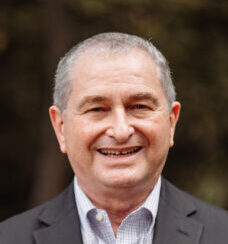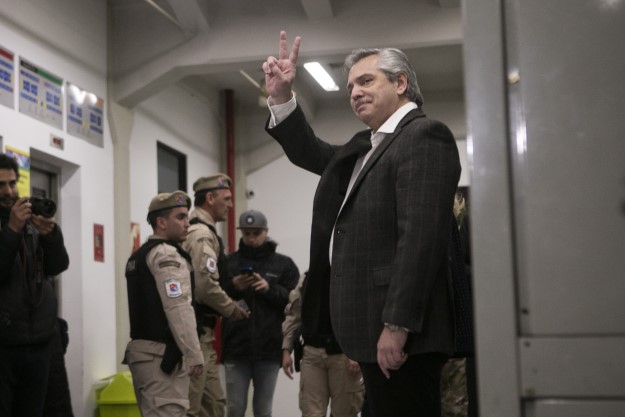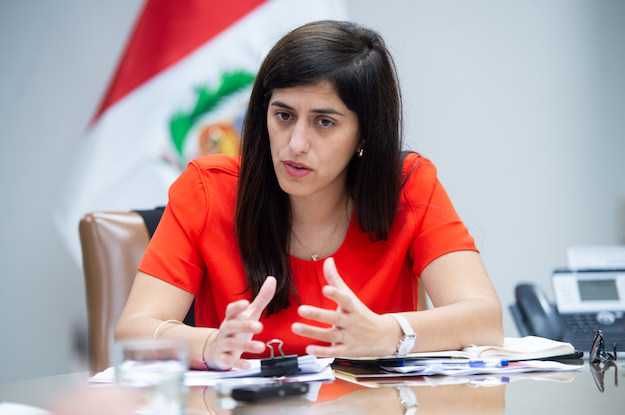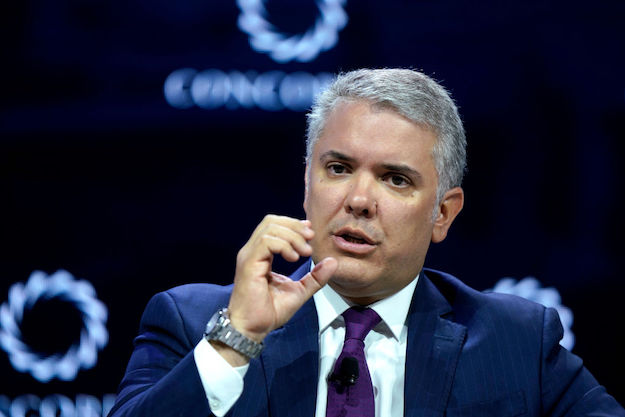Click here to read more about Argentina’s presidential race.
The unexpectedly strong performance of the Alberto Fernández-Cristina Fernández de Kirchner (FF) ticket in the August 11 presidential primaries in Argentina has triggered a stampede out of the country’s currency, stocks and bonds. Unless the confidence of local and foreign investors is soon recovered, the market rout has the potential to induce runaway inflation, plunge the economy into a deep recession, and cut off domestic and international financing for both the outgoing and incoming governments, potentially leading to a default.
The 15.6 percentage-point margin of victory of the FF Peronist ticket over President Mauricio Macri and his companion was foreseen by none of the pre-election polls. The wide performance gap between these main contenders shocked investors because it indicates the Fernández duo could win in the first round in the October 27 general election. The consensus forecast had been that outcomes in these primaries would be much closer, such that a second-round ballot on November 24 would be necessary – a contest that Macri might just win.
Moreover, the FF formula also had an unexpectedly successful coattail effect in provincial and local primaries around the country, most notably Axel Kicillof’s victory in the race for the governorship of the province of Buenos Aires, the country’s second-biggest prize. Though a close ally of Macri attracted the most votes in the race for mayor of Buenos Aires, that outcome was the exception that proved the rule.
In general, actual and potential supporters of the FF presidential ticket outperformed in the August 11 primaries, so much so that the October election contest could send Alberto Fernández to the Casa Rosada with exceptionally strong backing – majorities in one or possibly both houses of congress, and with mostly FF allies running provincial and municipal governments. Such a powerful government could implement much of its agenda, for better and for worse.
Now the challenge is to stop the vicious cycle of capital flight, currency depreciation, accelerating inflation and plunging economic activity that was sparked by the electoral results. This must be done sooner rather than later, because otherwise the government will find it very difficult to refinance its maturing short-term debts, and the central bank will likely experience a steady drain of its international reserves. In that scenario, the IMF, which has been sending big checks to Argentina every three months, would probably not send the next one in late September.
The Macri administration has announced some palliative measures (e.g. a 90-day freeze in gasoline prices and a tax exemption for food purchases), and the central bank has tightened marginally monetary conditions. But the government leadership team is powerless to restore the investor confidence that has evaporated. Given his clear frontrunner status, that responsibility rests with Alberto Fernández.
The current situation in Argentina is eerily reminiscent of that in Brazil in mid-2002. At the time, Luiz Inácio Lula da Silva, who was running for president for the fourth time, was looking surprisingly strong in the polls. Local and foreign investors were increasingly worried about what a Lula presidency could bring, and so they were dumping Brazilian assets – stocks, bonds and the currency. They feared that his victory would mean a break with the market-friendly policies of the outgoing Fernando Henrique Cardoso – including a break with the IMF, from which Brazil had been borrowing.
Worried about potentially inheriting an economic and financial mess, Lula decided to show his cards four months before the elections. In June 2002, he made a public statement – he called it a “Letter to the People” – making clear his commitment to sound fiscal and monetary policies and the rule of law. He wrote about a “new social contract capable of assuring economic growth with stability” one of whose premises was “naturally, a respect for the country’s contracts and obligations.” After all, Lula wrote, “it doesn’t matter who gains or loses electorally from the crisis, because it damages Brazil.”
And Lula followed those words with concrete actions. Two months before the elections, he gave his blessing to a new IMF program which committed the next government to maintain, with minor modifications, Cardoso’s austere fiscal and monetary policies. As a result, the central bank felt supported in its all-out effort to extinguish the flames of inflation and to buttress the currency. Interest rates were thus hiked as needed before and after the October 2002 elections.
Lula also put a market-friendly and popular mayor in charge of his transition team – he would end up being Lula’s finance minister – and had him reassure lenders and investors, both in Brazil and abroad. After winning the elections, Lula announced that a career private-sector banker who was affiliated with a mainstream political party would be his choice to run the central bank, and he too initiated confidence-building meetings with investors before taking office.
Will Alberto Fernández realize that he has the power to make a huge difference for good, like Lula did, but that he must act now? So far, he is denying any responsibility for the developing financial and economic crisis, blaming Macri for all that’s gone wrong. But unless he makes announcements that give confidence to local and foreign investors, he will inherit a mess.
—
Porzecanski is on the faculty of American University’s School of International Service, in Washington DC. Prior to moving to academia in 2005, he had a long and distinguished career as an international economist on Wall Street, specializing in emerging markets.








